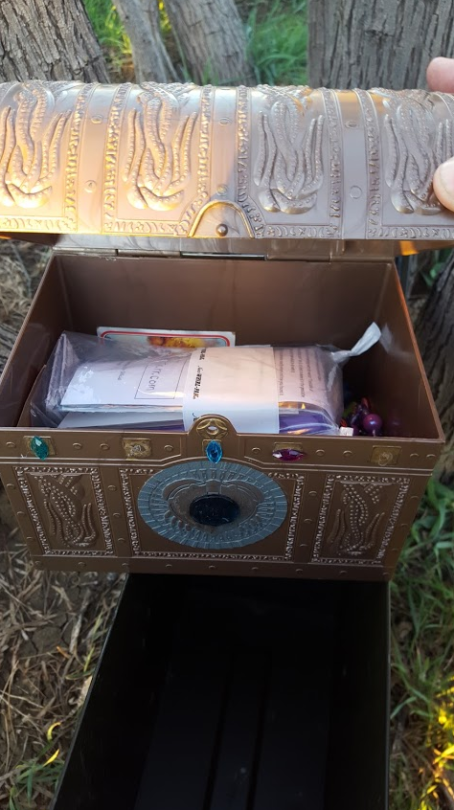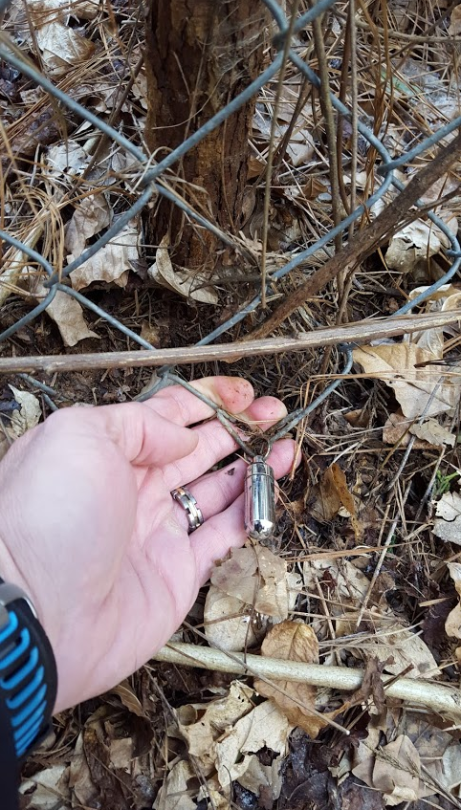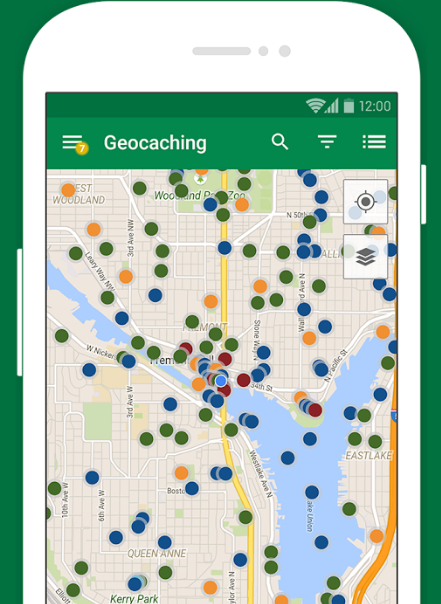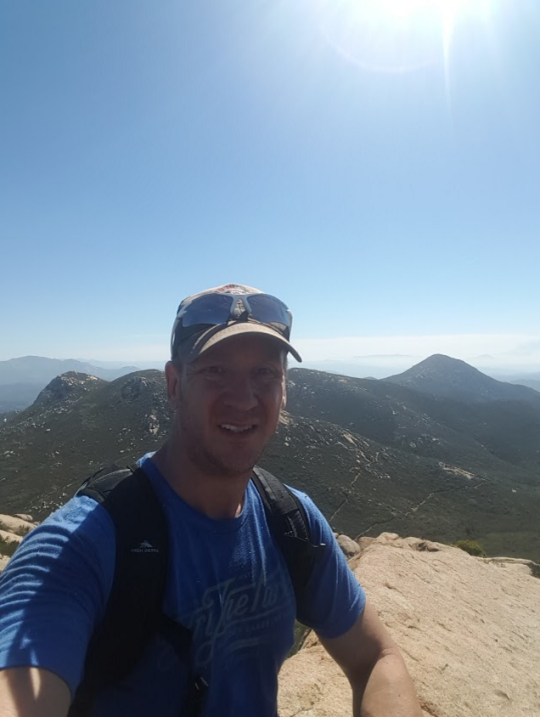By Andy Lowe
I love triathlon so don’t get me wrong here. But, sometimes I’m just over it. This is particularly true at the end of a season within which a full Ironman was my ‘A’ race. I don’t want to fall completely out of shape so I need a hobby that isn’t sitting at a desk or in front of a screen all day. I also want something that I can involve the family in since most of my training is outside of their normal waking hours. Enter geocaching.
Geo what? Geocaching. In short, it’s a recreational activity where you use a GPS device or a cell phone to find objects hidden by other people. What kind of objects you ask? Well, that’s not a straight forward answer. These hidden objects, called ‘caches’ come in many different forms and sizes. Some caches are very small, called ‘nanos’, and only contain a tightly rolled piece of paper to which a finder will sign their caching name indicating they have made the find. From there, they go up in size to film canisters, sandwich containers, ammo cans (no ammunition in them), to even a 5 gallon bucket. If the container is large enough, in addition to a log book for signing it may contain toys or other trinkets for trading (leave one, take one). My daughter loves it when there are ‘prizes’ inside.

A treasure chest of a geocache!
In addition to size, there are several different types of caches. A traditional cache is one where the cache is located at the coordinates provided on the cache page. A multi stage cache will begin at the coordinates provided but instead of an object containing a log book you may only find numbers or some other clue that will lead you to another location. This can continue multiple times before you reach the ‘final’ where you get to sign a logbook. Mystery caches are some of my favorites as they often involve a puzzle or riddle of some sort that must be solved prior to finding the cache. A physical and mental workout! There are even ‘virtual’ caches which do not have a physical log but rather questions to which you must provide answers based on what you see at the cache location.

A small geocache
When someone hides a cache, they post a listing for it on the website www.geocaching.com. You need to have an account to use the site but registration is free with an option for a premium access. Once you have an account, you can also use an app on your cell phone to find out what caches may be hidden in your area. The caches are hidden by coordinates or Longitude/Lattitude and you will need a GPS capable
device to go on the hunt. Using your GPS or phone will usually get you within 20-30 ft of the cache and from there you may have to search about a bit to find it. Some caches are pretty easy to find and others are well camouflaged to really challenge the finders. When you make a find, you sign the log contained in the cache and then later you can post your find online.

The Geocaching app.
So why do this? Well, as mentioned earlier, it is something that keeps me active and outside during the off season and it works well with the family. It also has taken me many places that I might not have otherwise gone such as a park or memorial or a hidden waterfall. It allows me to combine activities sometimes as well. I can find caches while out biking. If a cache is hidden on one of the islands at Lake Lanier, I can swim out instead of taking a boat. Many caches are hidden in areas with great hiking or running trails. And it’s fun. Since our family started caching we’ve found about 1100 caches in 25 different states and seen some really cool places. So go ahead, give it a try. You never know what you might find!

Andy in a place he likely would have never gone if not hunting for geocaches!


 SWIM
SWIM
 BIKES
BIKES
 APPAREL
APPAREL
 NUTRITION
NUTRITION
 COMPONENTS
COMPONENTS
 ACCESSORIES
ACCESSORIES
 Podium Multisports Blog
Podium Multisports Blog









